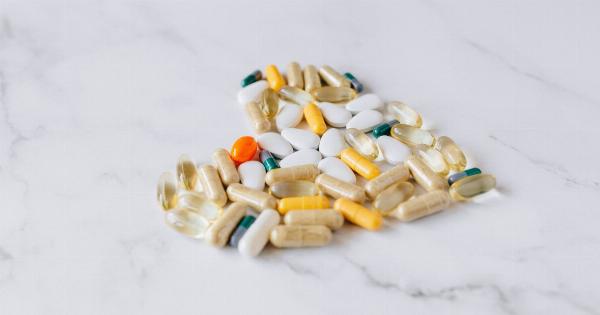Menopause is a natural stage in a woman’s life when her menstrual cycle comes to an end. It typically occurs between the ages of 45 and 55, with the average age being 51.
During menopause, a woman’s body goes through various hormonal changes, leading to symptoms like hot flashes, mood swings, weight gain, and bone loss. To alleviate these symptoms and maintain overall health during menopause, it is essential to pay attention to proper nutrition. In this article, we will explore the essential nutrients that women should focus on during menopause.
1. Calcium:
Calcium is crucial for maintaining bone health, and women going through menopause are at an increased risk of osteoporosis. It helps in preventing bone loss and reducing the risk of fractures.
Good dietary sources of calcium include dairy products, leafy green vegetables like kale and broccoli, almonds, and tofu. Aim for a daily intake of around 1200 to 1500 mg of calcium during menopause.
2. Vitamin D:
Vitamin D plays a vital role in calcium absorption and bone health. It aids in the prevention of osteoporosis and supports immune function.
Sunlight is a great natural source of vitamin D, and spending time outdoors can help your body produce this essential vitamin. Additionally, include foods like fatty fish, fortified dairy products, and eggs in your diet to ensure an adequate intake of vitamin D.
3. Omega-3 Fatty Acids:
Omega-3 fatty acids are known for their anti-inflammatory properties and are beneficial for heart health, brain function, and mood stability.
During menopause, including foods like fatty fish (salmon, mackerel), flaxseeds, chia seeds, and walnuts can provide a good amount of these healthy fats. Alternatively, consider taking omega-3 supplements after consulting with your healthcare provider.
4. Fiber:
Dietary fiber helps in maintaining a healthy digestive system by preventing constipation, which is a common problem during menopause. It also aids in weight management and supports heart health.
Whole grains, fruits, vegetables, legumes, and nuts are excellent sources of dietary fiber that should be included in your daily diet.
5. B Vitamins:
B vitamins, including B6, B12, and folate, play a crucial role in maintaining overall health and well-being during menopause. They support energy production, nerve function, and help combat mood swings and fatigue.
Good sources of B vitamins include whole grains, leafy green vegetables, eggs, poultry, and fortified cereals.
6. Magnesium:
Magnesium is an essential mineral that aids in bone health, sleep quality, and relaxation. It also helps in reducing muscle cramps and supporting cardiovascular health.
Foods rich in magnesium include nuts, seeds, leafy green vegetables, whole grains, and legumes. Aim for a daily intake of around 320 mg of magnesium during menopause.
7. Phytoestrogens:
Phytoestrogens are plant compounds that mimic the effects of estrogen in the body. They can help alleviate hot flashes, night sweats, and other menopausal symptoms.
Good sources of phytoestrogens include soy products like tofu and edamame, flaxseeds, sesame seeds, and whole grains like oats and barley.
8. Vitamin C:
Vitamin C is a powerful antioxidant that supports the immune system and helps in collagen production, contributing to healthy skin, bones, and joints.
Additionally, vitamin C aids in iron absorption, which is important during menopause due to an increased risk of anemia. Citrus fruits, berries, kiwi, bell peppers, and broccoli are rich sources of vitamin C that should be included in your diet.
9. Iron:
Iron is an essential mineral necessary for the production of red blood cells. During menopause, women are at an increased risk of iron deficiency anemia due to heavy bleeding during perimenopause.
Good dietary sources of iron include lean meats, poultry, seafood, beans, and fortified cereals.
10. Water:
Staying hydrated is important during menopause to prevent dryness, hot flushes, and maintain overall health. Make sure to drink at least 8 glasses of water per day, and include hydrating foods like fruits and vegetables in your diet.































